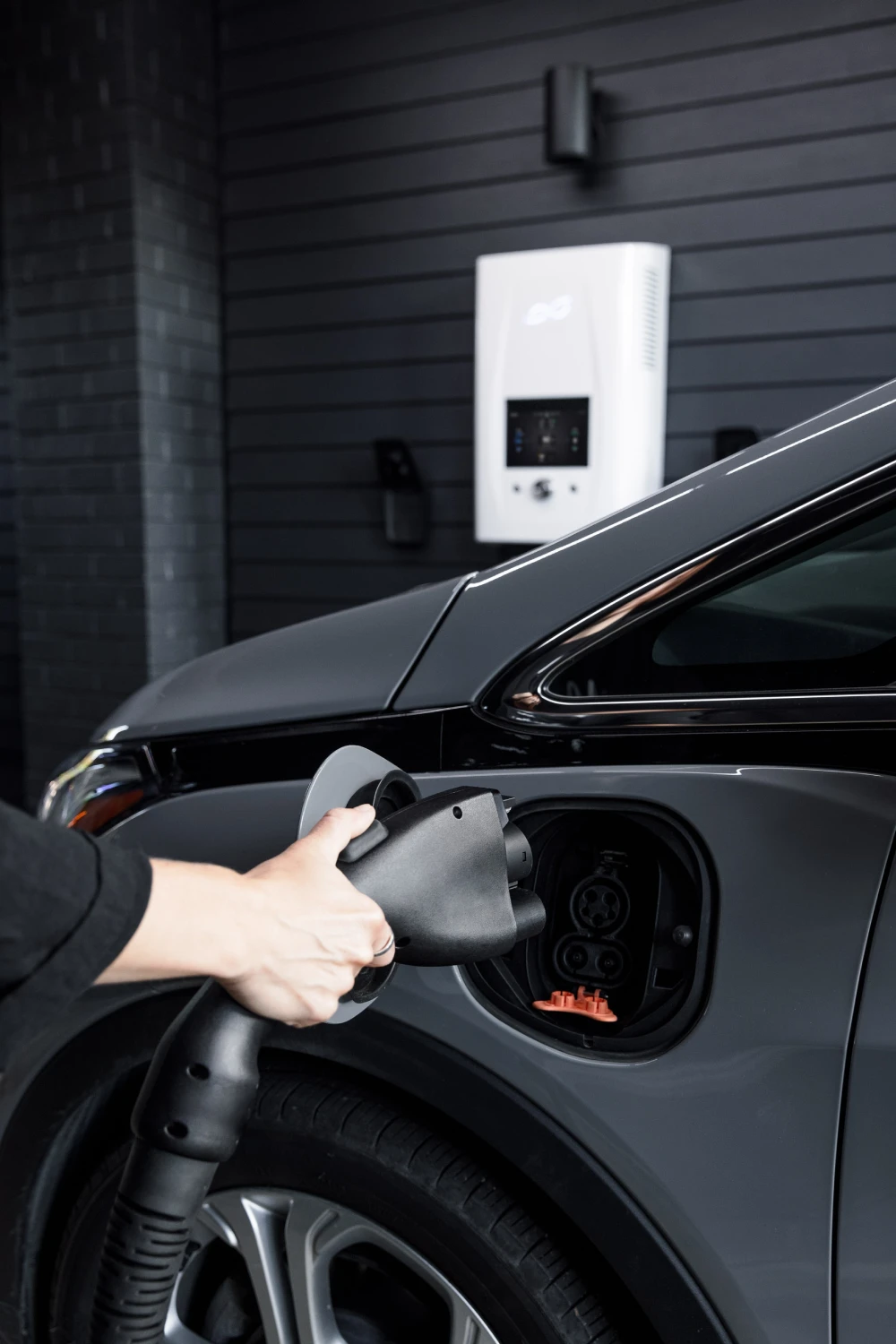EV Chargers
As Electric vehicles become more popular, one of the questions we get asked a lot is “Does my existing electrical panel have the capacity to run an electric vehicle charger?” The answer depends on many factors.
The higher the input amperage, the faster your car will charge. Determining whether your service panel is capable of providing the necessary power to meet your charging needs will depend on the existing electrical loads throughout your home.
There are three levels of EV charging stations – Level 1, 2 and 3. Level 1 chargers are most versatile but least practical as they plug into a standard 120v receptacle but could take between 24-48 hours to achieve a full charge. A more practical alternative are Level 2 chargers. They are most commonly used in households and commercial settings but require a 240V receptacle.
They can draw between 30-60 amps of power and achieve a full charge in 6-12 hours. Lastly, Level 3 chargers – also known as “DC fast chargers”, are the quickest method of charging but require higher input voltages not available in residential households. They are primarily used in commercial settings such as malls and high traffic areas and can provide a full charge in 15-60 minutes.

EV Charger FAQs
Here are some of the most common questions asked about Electric Vehicle Chargers
1) Where is the best place to install an EV Charging Stations?
EV chargers are best to install as close as possible to the vicinity where the car will be charging. Prior to installation, It is important to address which side of the vehicle the charging port is located so the charger can accommodate it’s location. Car Chargers can be installed indoor and outdoor depending on the application.
2) How will EV Charging Stations affect my electrical bill?
To obtain maximum savings, it is best to charge your vehicle during off-peak hours. Conveniently in Ontario, this happens to be between 7pm – 7am at a rate of 8.2 cents per kWh. On average, an electric vehicle charging for 6 hours – drawing 30-40 Amps of power – will cost roughly $4 per charge at off-peak and $8.50 on-peak. Depending on usage, you can expect an average monthly electrical bill of $25-$45. This is significantly cheaper than the cost of gas.
3) What EV charger do I need for my car?
You want to make sure the charger is capable of providing the amperage you desire in order to achieve the minimum charging time that would satisfy your needs. It’s VERY important to use brand name chargers made in North America as you do not want to deteriorate the battery over time.
4) Can every vehicle use the same type of EV charger?
Some EV companies, such as Tesla, have their own unique chargers that cater to only their vehicles, however, adaptors can be purchased to accommodate a variety of chargers.
5) Do all electricians install EV chargers?
Certified Licensed Electrical contractors who cater to EV charging stations are best to approach since they will ensure the job is completed to local codes and inspected by ESA (Electrical safety authority) after completion.
6) Can A stove or dryer plug power my electric vehicle?
Industrial grade receptacles are best to use as standard residential grade receptacles can fail due to the continuously high input wattage for long periods of time.
7) Do I need a permit to install an electric vehicle plug/receptacle?
Yes, a licensed electrical contractor is required to ensure a permit is used for this type of application. Failure to do so could cause a serious liability or risk of injury if a fire were to happen.
8) How fast can I charge my electric car?
This all depends on the EV charger’s capabilities and available amperage. You can achieve a 4-12 hour charging speed with a level 2 charger for residential households.
9) Is my electrical panel big enough to add an electric vehicle?
This depends on the existing electrical loads throughout your home along with your current main service capacity. Most residential electrical service sizes range from 60 – 200 Amps. 100Amp service sizes can be sufficient in powering an electric vehicle charger as long as the current loads throughout the home do not exceed the maximum allowable ampacity defined by the Ontario electrical code. It is best to schedule a consultation with a licensed electrical contractor for more information.
If you have any other questions or concerns, feel free to give us a call or send us a message. We would be happy to answer your queries.

